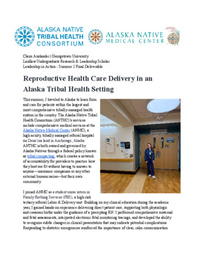For my Leadership in Action Project this summer, I spent eight weeks working at Reclaim Childhood in Amman, Jordan. RC is an international NGO that does sports for development for local and refugee girls across Jordan. They work in four hub sites: two sites in East Amman, Zarqa, and Mafraq. RC started as a small organization that just did summer camp and has broadened to year-round programming, outreach camps, the Qudrati Teen Leadership Program, and even some programming for mothers of the RC girls.
We had the chance to rotate through hub sites during RC’s flagship programming of summer camp as well as during leagues. Summer camps have all the girls (around 150 per site) from all age groups and all of the sports happen at once – basketball, soccer, frisbee, and small games. Leagues, on the other hand, split the girls into older and younger age groups that attend programming on different days. Additionally, leagues run only one sport at a time. In the office, we worked on a variety of projects, ranging from inventory and distribution of the equipment to grant applications/reports and monitoring and evaluation.
I learned so much about sport for development, the refugee crisis in Jordan, and NGO operations more generally during my time with RC. While I had been familiar with the idea of sport for development in an academic context beforehand, it was amazing to see it in action on the ground. Before going to Jordan, I had written a mock grant proposal surrounding sport for development for a class I was taking in the spring. When I got to RC, I was able to see how sport for development as a concept actually functions in the context of a real, working organization. At RC, coach trainings and exercises for the girls on the field are almost always connected to a social goal, such as social cohesion between cultural groups, teamwork, female empowerment, etc.
I grew as a leader, especially on the field, over the course of the summer. At first, I found it difficult at times to engage during camp because the coaches are the main leaders and as interns, sometimes we acted more in a coach capacity and other times we were playing on the field with the girls. It sometimes felt like an awkward in-between role because I didn’t want to step on the coach’s toes, but still wanted to be engaged and helpful. Over time, this became significantly easier. Part of this came from getting to know the coaches. The better I knew the coaches at the site, the more likely I was to feel engaged and comfortable. That is how Amman 2 (one of the East Amman sites) became my favorite hub site. I became friends with the coaches there and could jump around from coaching to playing easily with them.
It was also enlightening to get to see how an NGO works internally. RC’s Executive Director is based in the US while the Program Director and Program Associate were both located on-site in Jordan. This made for an interesting dynamic with respect to assigning projects and having contact with staff. It is definitely difficult to have such a small staff that exists across time zones, but RC staff work pretty independently whenever interns are not there, so it seems like they have less of an issue outside of the summer. Unlike other internships or offices I’ve experienced, this is an “all hands on deck” situation – most staff do some part of all the tasks depending on what is happening in the office.
Overall, this was a fulfilling and exciting end to my time as a Laidlaw Scholar. I learned a lot about NGO work, sport for development, and refugees as well as Jordanian culture. I can see tangible growth in my work and leadership abilities from the beginning of my Laidlaw research project to the end of my LiA. Thank you to the Laidlaw Foundation for giving me the opportunity to explore my passions in Jordan and to Georgetown’s Center for Research and Fellowship for their support and guidance throughout this program.





Please sign in
If you are a registered user on Laidlaw Scholars Network, please sign in